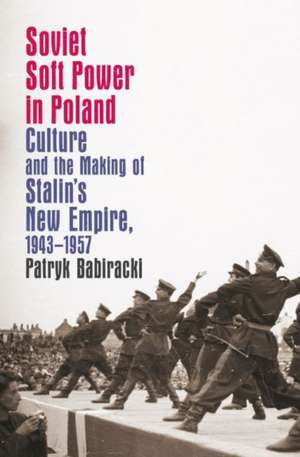Soviet Soft Power in Poland
Autor Patryk Babirackien Limba Engleză Paperback – aug 2019
Preț: 291.57 lei
Nou
Puncte Express: 437
Preț estimativ în valută:
55.80€ • 57.92$ • 46.53£
55.80€ • 57.92$ • 46.53£
Carte tipărită la comandă
Livrare economică 22 martie-05 aprilie
Preluare comenzi: 021 569.72.76
Specificații
ISBN-13: 9781469654782
ISBN-10: 1469654784
Pagini: 364
Dimensiuni: 156 x 234 x 21 mm
Greutate: 0.62 kg
Editura: The University of North Carolina Press
ISBN-10: 1469654784
Pagini: 364
Dimensiuni: 156 x 234 x 21 mm
Greutate: 0.62 kg
Editura: The University of North Carolina Press
Notă biografică
Patryk Babiracki is associate professor in Russian and East European history at the University of Texas-Arlington.
Descriere
Concentrating on the formative years of the Cold War from 1943 to 1957, Patryk Babiracki reveals Soviet efforts to build a postwar East European empire through culture. Babiracki argues that the Soviets involved in foreign cultural outreach tried to use ""soft power"" in order to galvanize support for the postwar order in the emerging Soviet bloc.
